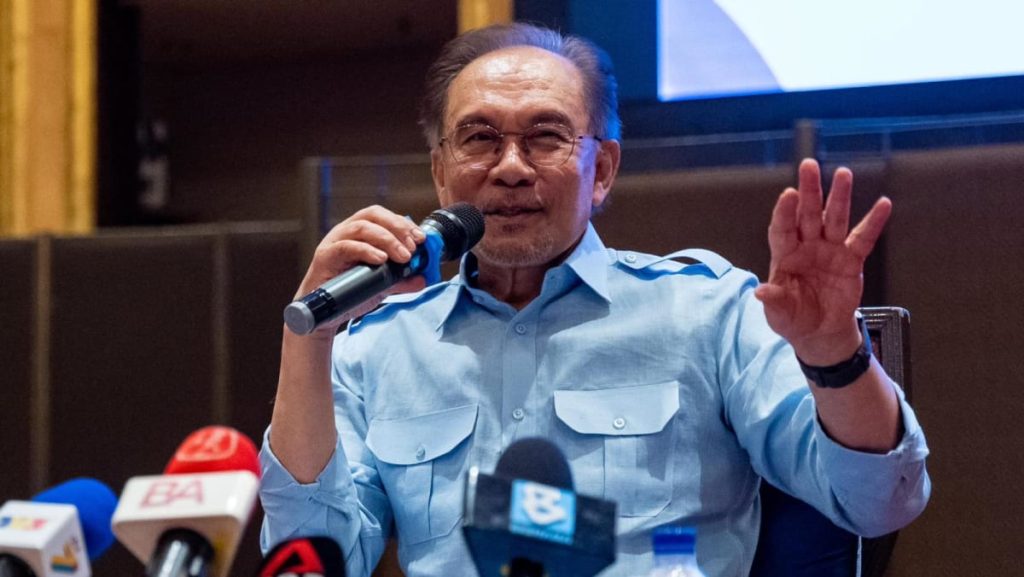A recent survey conducted by Merdeka Center offers insights into the Malaysian public’s perception of Prime Minister Anwar Ibrahim’s performance slightly over a year into his tenure. Polling 1,207 registered voters between November 27 and December 10, 2024, the survey revealed a mixed bag of opinions, with growing optimism in some areas alongside persistent economic concerns. While more respondents acknowledge improvements in Malaysia’s international image, foreign investment attraction, and civil service efficiency under Anwar’s leadership, the prevailing sentiment remains tethered to economic anxieties. The survey highlighted a near-even split among respondents regarding Anwar’s effectiveness in bolstering the economy, a key area of focus for his administration. Despite government efforts to highlight economic progress, the survey suggests these gains haven’t fully permeated public consciousness, with concerns about cost of living continuing to dominate.
A significant finding is the decrease in dissatisfaction with Anwar’s overall performance. While 39% of respondents expressed dissatisfaction, this figure represents a decline from 43% a year prior, signifying a modest yet noteworthy improvement in public perception. This shift could be attributed, in part, to the government’s continued efforts to address economic challenges and promote growth. However, the lingering economic anxieties underscore the need for these efforts to translate into tangible improvements in the daily lives of Malaysians. While Anwar’s administration has touted significant investments and initiatives aimed at boosting the economy and creating jobs, the impact of these measures appears to be lagging in terms of public perception.
The survey underscores the persistent challenge posed by economic pressures, particularly the rising cost of living. While incomes have seen some recovery since the COVID-19 pandemic, the escalating prices of goods and services continue to strain household budgets. This creates a palpable disconnect between the government’s pronouncements of economic progress and the lived reality of many Malaysians. While Anwar has emphasized the long-term benefits of investments and policy changes, the immediate financial pressures faced by citizens overshadow these longer-term prospects. The time lag between policy implementation and tangible benefits contributes to this disconnect, leading to a sense of impatience and skepticism among some segments of the population.
Despite the government’s efforts to showcase economic achievements, such as substantial digital investments and the New Industrial Master Plan 2030, the survey indicates that the economy and inflation remain the primary concerns for voters. This resonates with the sentiment that while macroeconomic indicators may show positive trends, these have yet to translate into meaningful improvements for the average citizen. The survey highlighted that a significant portion of respondents who felt the country was heading in the wrong direction pointed to unfavorable economic conditions, high living costs, and the weakening ringgit as their primary reasons. This reinforces the notion that pocketbook issues remain at the forefront of public concerns.
Anwar’s approval rating has experienced fluctuations since assuming office in November 2022. Starting at a high of 68%, the rating dipped to 50% a year later, primarily driven by economic concerns. It further declined to a low of 43% in June 2024, potentially influenced by the reduction of diesel subsidies and anxieties about its impact on consumer prices. However, the rating has since rebounded to 54% as of the end of November 2024. This recovery suggests that while economic concerns remain a significant factor, other aspects of Anwar’s leadership might be contributing to a more positive view among some voters. The survey data, while capturing a snapshot in time, indicates that Anwar’s performance is being viewed with cautious optimism.
In summary, the Merdeka Center survey paints a picture of a nation navigating a complex economic landscape. While there’s growing acknowledgement of improvements in certain areas under Anwar’s leadership, economic concerns remain paramount. The persistent challenges posed by inflation and the rising cost of living continue to shape public perception, highlighting a gap between government pronouncements of economic progress and the lived experiences of many Malaysians. While Anwar’s approval rating has seen a recent rebound, the underlying economic anxieties underscore the need for continued efforts to translate economic gains into tangible improvements for the everyday citizen. The survey also reveals a slight increase in concerns over identity politics, indicating the enduring relevance of these issues in the Malaysian political landscape.

